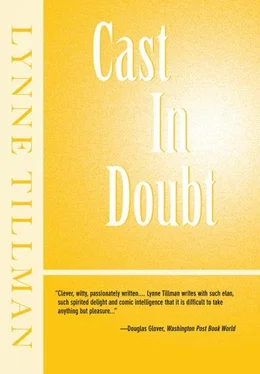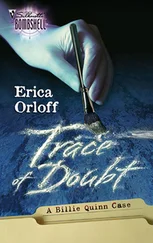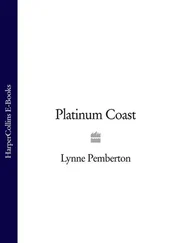I move in haste around the wide Venetian harbor and nod my head in greeting to shopkeepers who know me and even to some who don’t. Then I take my favorite shortcut, along the most narrow passage, which joins with the street I desire. Then I walk up the wide, flat concrete stairs that lead directly to Helen’s house. I listen to a canary sing from its cage — I do not find their music particularly pleasant — and from a courtyard I hear the sounds of domestic bickering, muted enough that the subject of their argument is unclear to me. I am not aware of being tired, or arthritic, not aware of my body at all, though I had spent days in languorous semi-retreat, I believe, from nearly everyone.
But I exaggerate. I did expect to find something, just one thing, to be honest, and that was Helen’s diary. Not expected, but hoped, I desperately hoped that it would be there, and in a way, because it was my certain hope, the predictable one, the one that anyone would have hazarded as Horace’s hope, I knew, in my heart of hearts, that it would not be there. In the natural course of things, she would have taken it with her. A girl’s diary absolutely would be carried with her, a precious object, faithful as a dog. Helen would never have left it behind. Apart from that, I did not have any particular hope.
The corroded iron gate to Helen’s house is hidden in shadow which I take as ominous, a warning, if not an omen. I stare at it before ringing the bell Bliss had fixed there years ago, though I know no one is at home. Or at least I hoped no one was at home. Suddenly Chrissoula appears from across the lane, having seen me approach, and greets me warmly, as if everything were normal. Helen? I ask. I have not seen her, I explain in Greek, in a long time. Chrissoula nods her head up and down and then from side to side, indicating she is dubious about her young charge. She then places one finger at her mouth as if to say she cannot speak or is not supposed to. And promptly Chrissoula shuffles off, her skirt swinging about her ankles. She disappears across the lane and enters the door to her house. She takes such good care of Helen. But her behavior is odd; usually Chrissoula is garrulous.
I do not ring the bell. I walk through the exterior gate to the front door. I am enormously light-headed and, in the moment, unconscious of any specific worry. Blank, as I have already said. I push open the centuries-old thick wooden door and glance around the small ground-floor room. The house is remarkably narrow, a sliver of a house. It still has no floor. Then I ascend the equally narrow stairs which are in almost complete disrepair and most likely dangerous, so I step lightly. I always say to myself when stepping lightly, why should this matter? Am I not the same weight?
I arrive at the second floor. It is sparsely furnished and obviously disused. There are many books in Bliss’ bookcases; they are in poor shape. There is a broken chair as well as some insignificant ceramic pieces. Unimportant pieces, I tell myself, ruing the fact that Bliss, though a painter, has no eye for decor and the decorative arts. I continue the climb and reach the top floor, which I know to be Helen’s space, as she had called it such.
I put my hand to my nose. The smell is overwhelming. At first I think, it must be death. Someone has died, I think nervously. Helen, oh no. But it is not an awful, disgusting smell that one associates with decay and a body’s rotting, just an overpowering one. Sweet and sickly, like a cheap commercial perfume. I do not appreciate most perfumes; but I love the natural scent of flowers, of roses and camelias, of course, or of cut grass on a summer’s day, or newly mown hay pitched next to a red barn. I even have liked the earthy stench of horse manure. The smell of sex is incomparable.
Helen’s room reeks of distress, if distress may be said to have an aroma. But the first response that bubbled inside me and then formed into a word was, Insanity. This is insane, I say to myself. Perhaps I uttered it aloud. The room is not messy in the usual sense. It is out of order, entirely. The Greeks have a word for it — chaos. Could Helen have lived like this?
First, all the walls are painted black. It is dark in here, the windows having been covered over, and I cannot find a wall socket. When I do, I flip the switch but nothing happens. There is enough light to see shapes and images fuzzily. Clothes and rags have been thrown everywhere, bits of torn paper are piled in odd shapes, unusable paintbrushes left in strange places, and on the black walls daubed in what I take to be shocking pink are ragged forms that Helen must have drawn when beside herself. Her bed — there is no bedspring or backboard — is littered, covered in stuff — clippings, pins, beads, odds and ends, junk. The mattress, which has several cigarette burns, is on the floor. There are no sheets in sight and worse, no pillow, which reminds me of something John had said about Helen’s not having pillows on her bed when he knew her in New York. This did not jibe with my idea of Helen. I can’t remember why John mentioned it. It will come to me, undoubtedly.
Papers are everywhere, books — Bliss’, I am sure — strewn about as if a great wind or hurricane had blown through, wreaking havoc, concocting this strange disorder. Hundreds of what I take to be photo-booth portraits of Helen and her friends lie in a box next to the bed. Holding some up to the light, I can just barely see them, but am able to ascertain that her friends are in all manner of costumes, making funny, ridiculous faces — pulling a face, my mother used to say — and Helen herself is posing archly, this way and that, with hats, makeup, props. There are Polaroid pictures as well, of long-haired young men who are sullen but attractive. One or two is nude. One of them is or must be John.
Cups of half-drunk and moldy coffee on the floor are a discordant note among many discordant notes — in my presence Helen never drank coffee. Or did she? I bend over to sniff one of the cups; this may enable me to tell when she left. I do so virtually in the style that cowboys and Indians are shown doing in movies when they search for their man and study the tracks of his horse. This seemed entirely silly to me a moment after I’d done it. There are dead flowers in filthy vases and magazine pictures — primarily of politicians and celebrities — thrown about in no discernible pattern.
And that is what I am searching for — a pattern. Just as I become cognizant of this, I look up and, as if it were fated, the wind blows through a broken window and stirs some of the papers on the bureau, which is also painted black. I walk to it. The mirror above it is covered only partially in paint. Revealed by the breeze, under one piece of paper on the bureau is another. I peer at it intently. I see my name. It is written in bold block capital letters, HORACE, just that, and under my name a few blotches or stains, and some lines crosshatched over what may have been other words. Stuck to this piece of paper is yet another. On it is writing, again in bold capital letters but more shocking: FUCK EVERYTHING. OEDIPUS WRECKS. Beneath this is a drawing of what looks to me like a duck, of all things, but it may be another creature. On the back of this piece of paper is pasted a map of the southern half of Crete. A large glittery dot has been placed on it, close to several small towns, yet not at the towns precisely, rather beside or in the middle between them. But it is really too dim in here for me to tell. I delicately take up the pieces of paper, precious and strange, and hold them in my hands. Then I walk out through the French doors — whose windows have been covered with newspaper clippings — onto Helen’s terrace, where I had often seen her ensconced, had watched her from the restaurant or from my windows. Now I look toward my windows, but see nothing. I am happy that Yannis is not spying on me.
Читать дальше












